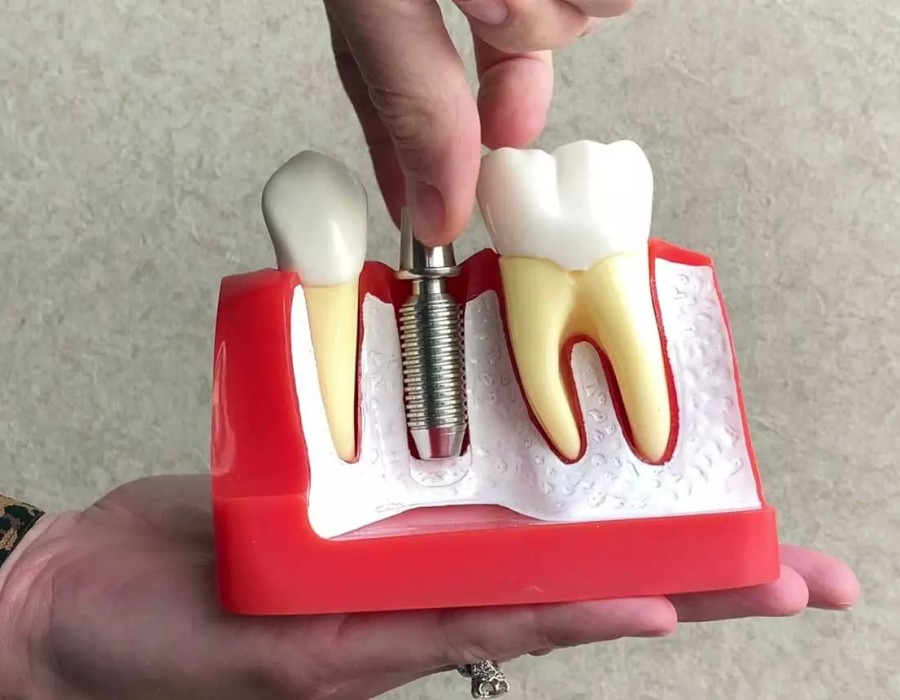A healthy, complete smile does more than improve appearance—it also supports overall oral health, speech, and the ability to chew comfortably. When teeth are lost due to decay, gum disease, or injury, it can affect confidence and daily life. Fortunately, modern dentistry offers reliable solutions, and dental implants have emerged as one of the most advanced and long-lasting options for tooth replacement.
But are dental implants the right choice for everyone? Let’s look at the benefits, considerations, and factors that help determine if this treatment is the best fit for you.
What Are Dental Implants?
Dental implants are artificial tooth roots made from biocompatible materials like titanium. These small posts are surgically placed into the jawbone, where they fuse naturally through a process called osseointegration. Once healed, the implant supports a crown, bridge, or denture, mimicking the function and look of natural teeth.
Unlike removable dentures or traditional bridges, implants provide a permanent, stable solution that feels and functions like real teeth.
Benefits of Dental Implants
1. Natural Appearance and Feel
Dental implants are custom-designed to match the shape, size, and color of your natural teeth. Because they fuse with the jawbone, they feel secure and comfortable, unlike dentures that may shift while speaking or eating.
2. Improved Chewing and Speech
Missing teeth or ill-fitting dentures can make it hard to chew certain foods and may even affect the way you speak. With implants, chewing efficiency is restored, and speech sounds natural again.
3. Long-Term Durability
With proper care, dental implants can last for decades, often longer than bridges or dentures. They are considered a long-term investment in both oral health and quality of life.
4. Prevention of Bone Loss
When a tooth is lost, the jawbone beneath it begins to shrink because it no longer receives stimulation from chewing. Dental implants act like natural tooth roots, preserving bone density and preventing the “sunken” facial appearance that often comes with missing teeth.
5. No Impact on Adjacent Teeth
Unlike traditional bridges, which require grinding down healthy neighboring teeth for support, implants stand independently. This protects your remaining teeth from unnecessary damage.
6. Boost in Confidence
Having a complete smile can greatly enhance self-esteem. Many patients report feeling more comfortable in social situations after implant treatment.
Considerations Before Getting Dental Implants
While dental implants offer many benefits, they are not suitable for everyone without careful evaluation. Here are some key factors to consider:
1. Jawbone Health
Adequate bone density is essential for implant success. If bone loss has already occurred, bone grafting may be recommended before placement.
2. Overall Health Condition
Certain conditions such as uncontrolled diabetes, autoimmune disorders, or smoking may affect healing and implant success. A thorough health assessment is necessary.
3. Gum Health
Healthy gums are critical for supporting implants. Patients with untreated gum disease may need periodontal therapy before implant placement.
4. Time and Commitment
The implant process takes several months because it involves surgery and healing time for osseointegration. Patients must be prepared for this timeline.
5. Cost Considerations
Dental implants tend to be more expensive upfront compared to bridges or dentures. However, their durability and long-term benefits often outweigh the higher initial investment.
Who Is an Ideal Candidate for Dental Implants?
You may be a good candidate for dental implants if:
- You have one or more missing teeth.
- Your jawbone is fully developed and healthy.
- You don’t have health conditions that interfere with healing.
- You practice good oral hygiene and attend regular dental check-ups.
- You are looking for a permanent, natural-looking replacement solution.
The Dental Implant Process
- Consultation and Examination
- Your dentist will evaluate your oral health, bone density, and overall condition through scans and x-rays.
- Implant Placement
- A titanium post is surgically inserted into the jawbone. Healing time may vary but usually takes a few months.
- Abutment Placement
- Once healed, an abutment (connector) is attached to the implant.
- Crown or Prosthesis Placement
- Finally, a custom-made crown, bridge, or denture is secured, completing your new smile.
Alternatives to Dental Implants
While implants are a leading solution, they may not always be the best choice. Alternatives include:
- Dental Bridges – Good for replacing one or two missing teeth but may affect neighboring teeth.
- Removable Dentures – Less costly and non-surgical, but may lack stability and comfort.
- Partial Dentures – Suitable when multiple teeth are missing in different areas.
Dental implants have transformed modern dentistry, offering a solution that is strong, natural-looking, and long-lasting. For many people, they are the best choice to restore function and aesthetics after tooth loss.
However, they are not a one-size-fits-all option. Factors like bone health, overall medical condition, and budget must be considered. Consulting with a qualified dental professional will help you understand whether implants are right for you and what alternatives may work if they are not.
If you are missing teeth and want a confident, functional smile again, dental implants in Malad West at Kare Dental Clinic might be the key to restoring your oral health and quality of life.





Comments